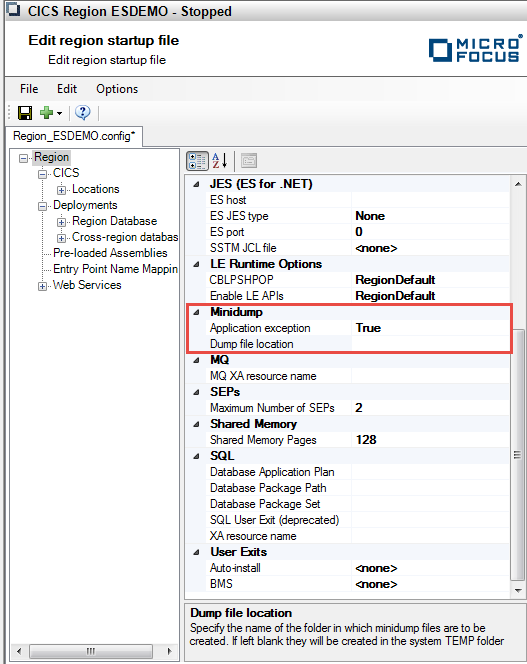





CICS and JES regions can be configured to create a Microsoft minidump file whenever an exception (including a COBOL run-time system error) occurs within a user application. A minidump file can be loaded into a debugger such as Visual Studio or windbg to identify where in the application code the exception has occurred.
To enable a region for minidump creation, open the startup file of the CICS or JES region you are configuring, with the Region Startup File editor and locate the Minidump category in the properties window. Change the value of the Application exception property to true, and, optionally, specify the folder location where you want the minidump files to be created as the value of the Dump file location property. If the dump file location is left blank, the minidump files will be written to the folder associated with the TEMP environment variable.

When a minidump is created at run time, a message is written to both the system console and the Windows Event log indicating its name and location:
Micro Focus compile all the Enterprise Server for .NET assemblies in Release mode with the ILPDB directive set, and the pdb files are shipped with the product in a zip file called EnterpriseServerDotNetPdb.zip in the binAnyCpu\SEE directory in the product install location. Please include this zip in any diagnostic collection set that includes a minidump.


